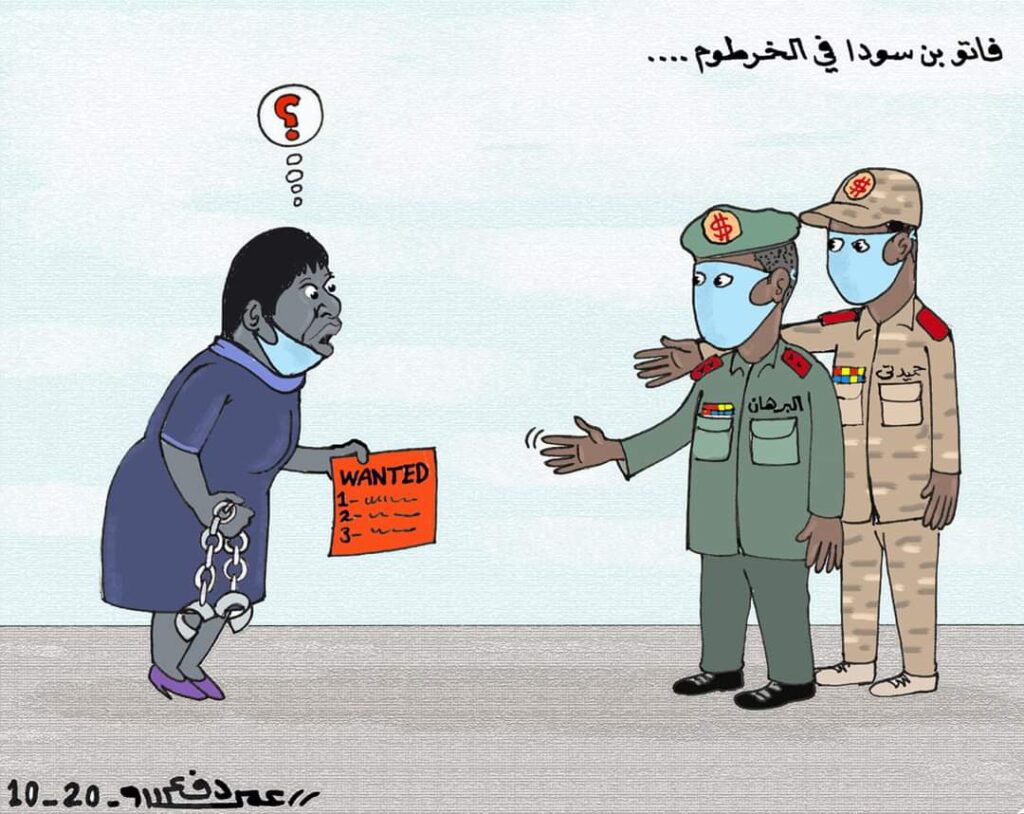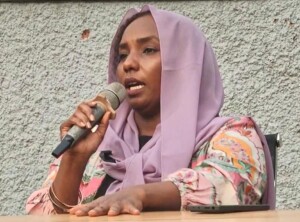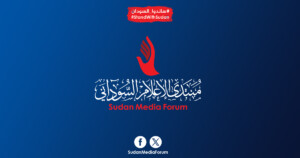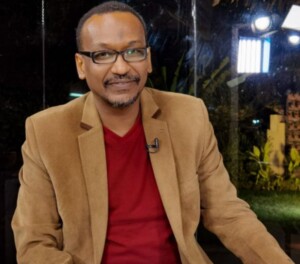ICC starts investigations into Darfur violence

Cartoon by Omar Dafallah on the first time an ICC prosecutor (Fatou Bensouda) visits Sudan, in October 2020. She is welcomed by El Burhan and Hemedti (RD)
NEW YORK –
The International Criminal Court (ICC) in the Hague has launched an investigation into attacks on civilians in Darfur since war broke out in Sudan mid-April between the Sudan Armed Forces and the paramilitary Rapid Support Forces. “We owe it to people that have felt invisible for almost 20 years,” Prosecutor Karim Khan told the UN Security Council on Thursday.
“The office can confirm that it has commenced investigations in relation to incidents occurring in the context of the present hostilities,” the ICC prosecutor said in his briefing to the United Nations Security Council (UNSC).
The investigations will “prioritise crimes against children and crimes of sexual and gender-based violence”.
The current investigations into the ongoing violence encompass “many allegations in West Darfur: looting and judicial killings, extrajudicial killings, burnings of homes, and also allegations in North Darfur”.
The prosecutor began his brief by saying that “it’s 90 days now, 90 days from the 15th of April, when fighting erupted between the RSF, the Rapid Support Forces, and the Sudanese Armed Forces. And that conflict, that engagement, has spilled out of Khartoum to engulf much of Sudan. Certainly, it is felt by the people of Darfur.
“And the simple truth is that we are in this Council and in the world, as we see increasing reports, in peril of allowing history to repeat itself: the same miserable history that compelled this Council in 2005 to refer this Darfur situation to the ICC,” Khan started his brief.
‘If we fail to deliver here, I think the implications are very severe. As we see in other situations, it calls into question the relevance of this Council’
Khan referred to the report of the Office of the High Commissioner for Human Rights which details allegations concerning the killing of 87 ethnic Masalit in West Darfur that his Office has started investigating those allegations.
The mandate of the ICC, pursuant to the 2005 Security Council Resolution, “is ongoing with respect of crimes within our jurisdiction: the crimes of genocide, crimes against humanity, and war crimes. And any individual who is found to be committing those crimes within our jurisdictions will be investigated.
“This is a moment really, Mr President, where we should really converge the Charter principles, the principles hard won at Nuremberg, the Rome Statute obligations and your own authority as a Council that in 2005 made a determination that these acts represented a threat to international peace and security.”
Disregard
Khan underscored “the moral responsibility and the legal responsibilities that we owe to people that feel invisible, that have felt invisible for almost 20 years, and who feel that the law and the pronouncements and resolutions from this Council are not taken seriously, and are not delivered to protect them, to be a shield for them as the Charter requires”.
He pointed to the “fundamental disregard and breach of clear, repeated commitments that have been made to the people of Sudan by their governments. And one can go through a whole litany of instruments and promises made but one can simply limit it to two: the unfulfilled Juba peace agreement of 3 October 2020, and the commitments made to myself, to my Office by the government of Sudan by dint of the Memorandum of Understanding signed on 12 August 2021.
‘We owe moral responsibility and legal responsibilities to people that feel invisible, that have felt invisible for almost 20 years, and who feel that the law and the pronouncements and resolutions from this Council are not taken seriously, and are not delivered to protect them, to be a shield for them as the Charter requires’
“And this compels my Office to look how it can more effectively render justice at this moment in a way that we will not allow any errors of the past, any obstruction, any non-cooperation to sabotage the prospects of justice or to sabotage or render impotent the will of this Council with the heavy responsibilities that are placed in you.
“By any measure, a failure to meet international legal obligations and the absence of any meaningful justice in Sudan for the serious crimes committed in Darfur 20 years ago, have sown the seeds to the weeds of woe that is the now the misfortune of so many Darfuris,” Khan stated.
“And there has been hope. In the last six months tremendous progress has been made in the ICC case regarding Ali Kushayb (Mr Abd-Al-Rahman), and we’ve closed our case after presenting 81 witnesses that have been tested by the defence and have been heard by the judges of the ICC.”
‘Relevance of UNSC‘
In his passionate plea for justice for the Darfuri, Khan urged the UNSC to support the work of the ICC: “we will ensure to the best of our ability that there is justice, that there is accountability. Because if we fail to deliver here, I think the implications are very severe. As we see in other situations, it calls into question the relevance of this Council”.
‘Only if we work in that way of humility will we vindicate the promises we’ve been making since 2005′.”’
Khan concluded his briefing by pointing his religion which is the same as the Sudanese warring parties. “Many actors in this conflict proclaim to be Muslims. I recall not only their responsibilities under the Charter, their responsibilities under Resolution 1593, their commitments by Juba, their commitments in the MoU they signed, but also in terms of the religion that they profess to uphold, which is Islam.
“And the Holy Quran, Surah An-Nisa, which is Chapter 4, Verse 135, makes it clear, and I quote: “Be upholders of justice and witnesses of truth, even though it be against yourselves or against your parents, or be it against rich or poor. If you distort justice, God Allah Ta’ala, knows that which you do.
“I think only if we work in that way of humility will we vindicate the promises we’ve been making now since 2005.”
Indicted
In 2007, following investigations into crimes committed in Darfur between 2003-2004, ICC issued arrest warrants against Ahmed Haroun (also spelled Harun), former Minister of Interior Affairs and Minister of State for Humanitarian Affairs, and janjaweed leader Ali Kushayb.
Al Bashir was indicted by the ICC in 2009 for war crimes and crimes against humanity in Darfur, and in 2010 for genocide. Following the 2018 Revolution that led to his ousting in April 2019, he was convicted of corruption by a Khartoum court in December that year and sentenced to two years in a prison for the elderly. He still faces various other charges in Sudan, including staging a military coup in 1989.
The ICC issued an arrest warrant against former Interior and Defence Minister Abdelrahim Hussein in 2012, for war crimes and crimes against humanity in Darfur.
In February 2020, the new, civilian-led government agreed that Al Bashir, Haroun, and Hussein would be transferred to The Hague to face justice, but this was not implemented.
The three were detained in 2019 and were held in Kober Prison in Khartoum North. Al Bashir was later transferred to a hospital in Khartoum. Haroun, Abdelrahim, and other ‘Islamist hardliners’ managed to escape during attacks on the jail in end April. Al Bashir is now reportedly being treated in a military hospital in Omdurman.
In 2014, the ICC issued another arrest warrant, accusing Abdallah Banda, commander-in-chief of a breakaway faction of the Justice and Equality Movement, of war crimes in Darfur. The former rebel leader is still at large.
Kushayb is the only one being tried. He was transferred to ICC custody on June 9, 2020 after surrendering himself in the Central African Republic. Upon his arrest, the Sudanese government announced its support for his transfer to the ICC.











 and then
and then